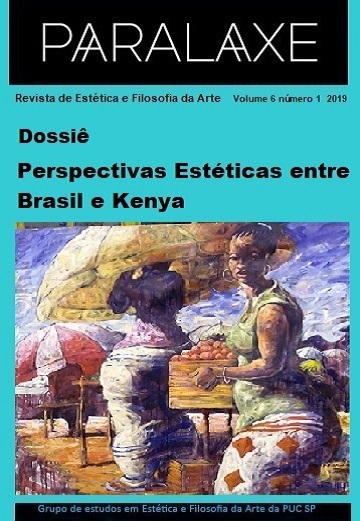The Representation of Womanhood in Kenya’s Contemporary Painting: Mukabi’s mama kibanda
Palavras-chave:
Contemporary painting, everywoman, everyday aesthetics, naïve art, international scholars, style, themeResumo
A look at contemporary painting in Kenya exposes the palpable cultural distance between international scholars and the art producing community. It also provides a plausible explanation for the conflicts between the naïve/abstract style on the one hand and the realistic/representational ones on the other; a position that hampers aesthetic appreciation and self understanding. Therefore, Patrick Mukabi’s paintings, with their commonplace everywoman (mama kibanda) form the substance of this paper. Intended as a contribution to the discourse, this critique concentrates on one of the themes tackled in today’s paintings. Previous discussions were anchored on style. While these helped fetch high prices in the global art markets, they contributed little to furthering the construction of a home grown aesthetic. And the obtaining situation is somewhat comparable to language: foreign debates about a language fail to improve it for the native users and in like vein foreign debates about Kenyan paintings do little to improve Kenya’s aesthetic. The portrayal and consequent aesthetic of womanhood comprises the main argument, centered on the ordinary, commonplace woman because she reflects the society appropriately, displaying the everyday with ease, according to Mukabi. Further, Mukabi’s portrayal of woman is compared to that of his contemporaries. The place, attitude and appreciation of woman is analysed and, as the figure is quizzed, it emerges that Mukabi covers the four Aristotelian causes that lead to possessing knowledge. Themes in contemporary paintings, like the mama kibanda, resonate with current narratives in Kenya.
Downloads
Publicado
Como Citar
Edição
Seção
Licença
Cedo à revista Paralaxe os direitos autorais de publicação de meu artigo e consultarei o editor científico da revista caso queira republicá-lo depois em livro.


